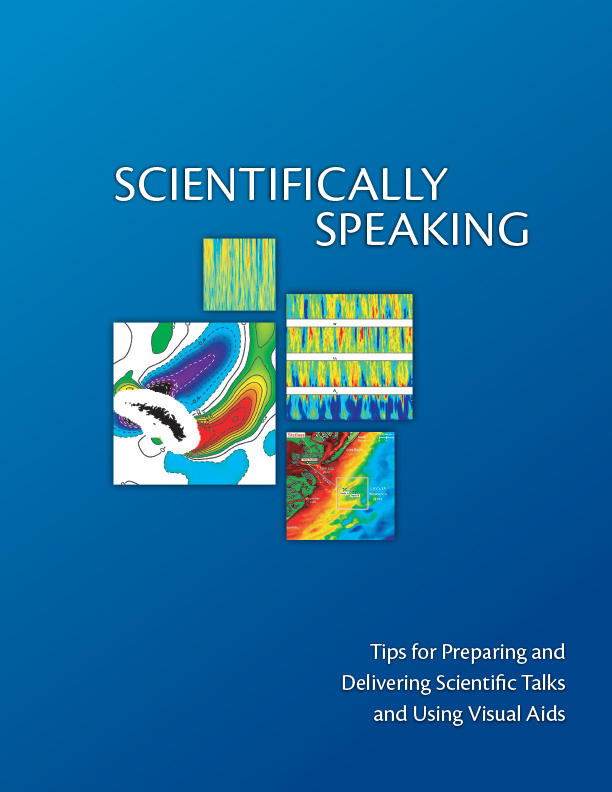Scientifically Speaking
> English (2.74 MB pdf)
> Spanish (5.04 MB pdf)
From graduate school to retirement, giving presentations is part of the fabric of scientific life. In the course of that life, scientists generally progress from “entrance” poster presentations, to short oral presentations, to longer invited lectures. Although the first edition of this booklet focused on the latter, this version addresses all three forms of presentation because each has its own challenges—challenges that must be identified and met if effective scientific communication is to happen.
Although scientific presentations are an accepted means of accomplishing the exchange of knowledge and information that is essential to scientific endeavor, many posters are ineffective communication tools and far too many bad talks are still being given. If presentations are not of the highest caliber in both content and delivery, communication is flawed and science is neither properly served nor facilitated. Development of good public speaking skills will also make positive contributions to many other aspects of an individual’s career, given the importance of oral communication in other scientific situations, such as committees, boards, and public-policy discussions.
To improve the flow of information among scientists, this publication attempts to provide advice and observations on preparing and delivering scientific presentations, taking these in career order, starting with poster presentations and moving on to oral presentations, both short and long. Many of the oral presentation points will apply to any public speaking situation, although others are unique to a scientific environment. We hope that the material assembled here will be of value to the scientific community. Future posters and talks will tell.
This booklet, first published in 1995 by The Oceanography Society, was updated and revised in 2005. It is intended to improve the flow of information among scientists by providing advice and observations on preparing and delivering a scientific talk. The booklet includes advice on using recent developments in electronic visual aids.

© 2025 The Oceanography Society
1 Research Court, Suite 450-117, Rockville, MD, 20850, USA | Phone: (1) 301-251-7708 | [email protected] | Privacy Policy





